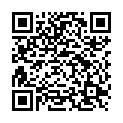|
|
|
| Module code: BSP-4 |
|
|
2V+2PS (4 hours per week) |
|
6 |
| Semester: 1 |
| Mandatory course: yes |
Language of instruction:
German |
Assessment:
BSP-4.1: Written exam (K) (bn)
BSP-4.2: /
[updated 20.05.2020]
|
BSP-4 (P322-0097) Social work and early childhood, Bachelor, ASPO 01.10.2017
, semester 1, mandatory course
BSP-4 (P322-0097) Social work and early childhood, Bachelor, ASPO 01.10.2019
, semester 1, mandatory course
|
60 class hours (= 45 clock hours) over a 15-week period.
The total student study time is 180 hours (equivalent to 6 ECTS credits).
There are therefore 135 hours available for class preparation and follow-up work and exam preparation.
|
Recommended prerequisites (modules):
None.
|
Recommended as prerequisite for:
|
Module coordinator:
Prof. Dr. Markus Ciesielski |
Lecturer:
N.N.
[updated 04.11.2017]
|
Learning outcomes:
After successfully completing this course, students will:
- be able to relate sociological "thinking" and different approaches to the analysis/interpretation of social reality.
- be able to explain the difference between empirical analysis, theoretical arguments and normative-ethical evaluations.
- be able to identify central (sociological) concepts, classics, basic facts and theory, as well as their significance for social work and childhood education.
- be able to practice the _Tatsachenblick_.
- be able to grasp social phenomena in terms of concept, recognize their genesis, reflect upon it theoretically and classify empirical findings related to it.
- be able to assess the significance of social facts, social structures and processes for individual development, for the environment of individuals and groups and for social cohesion.
- be able to identify social problems on an empirical basis, classify them theoretically and assess and evaluate the consequences for the addressees of social work and childhood education.
- be able to form their own opinion on conflicts of interpretation, distribution and recognition.
[updated 20.05.2020]
|
Module content:
Lecture:
The lecture introduces social science thought and deals with central terms and theoretical concepts on the macro-, meso- and micro-level such as social action, community and society, role, communication and interaction, group, institution and organization, social systems, social structure, social space and social integration. Central questions will be the relationships between the individual and society and between structure and action.
Introductory seminar:
topics from the lecture will be discussed in depth.
[updated 20.05.2020]
|
Teaching methods/Media:
- Lecture
- Discussion of module topics (seminar discussion)
- Literature studies (individual work)
- Group work
- Presentations by the students
[updated 20.05.2020]
|
Recommended or required reading:
The most current introductory textbooks and manuals on the social sciences.
[updated 20.05.2020]
|


